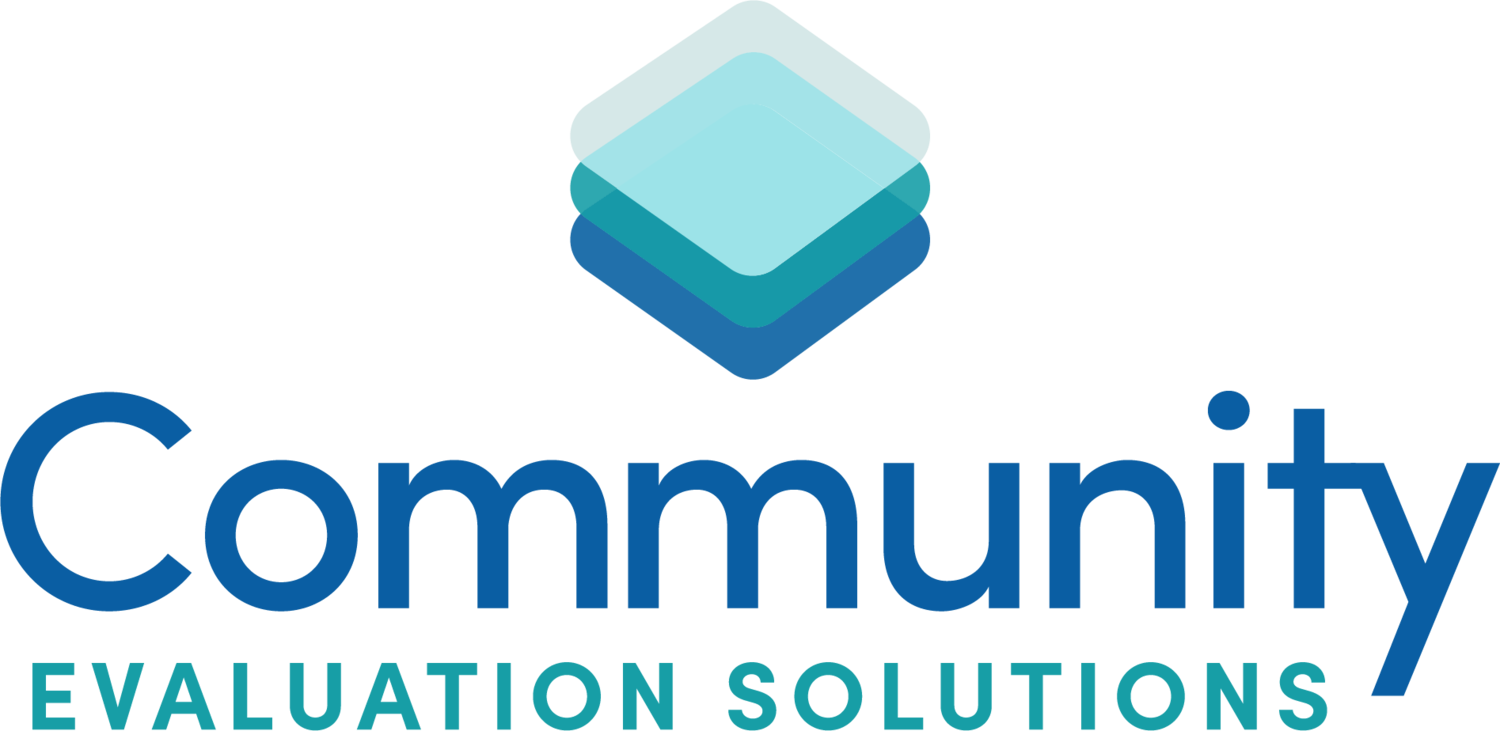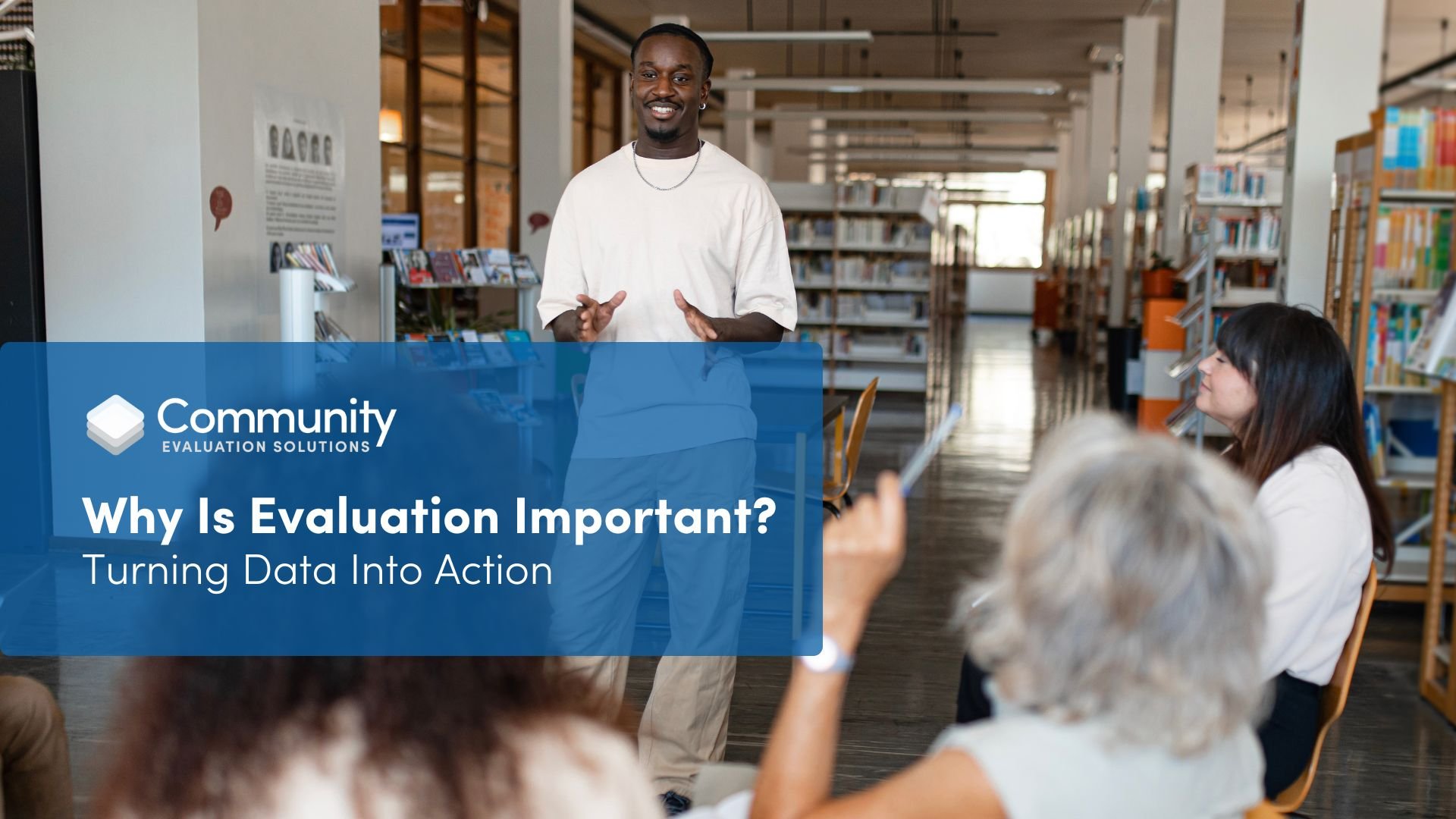Why is evaluation important for nonprofits?
If you’re reading this, you’re probably passionate about making a difference through your nonprofit work.
But here’s the thing: making a difference is only part of the story. To truly show the value of what you do, you need to understand your effectiveness.
Understanding the success of your programs isn’t just about collecting data; it’s about truly grasping how effective your efforts are and what opportunities are needed. That’s where evaluation comes in. It’s not just a tool; it’s essential for enhancing the effectiveness of the great work you do in the communities you serve.
What Should Nonprofit Leaders Know About Evaluation?
Evaluation is the process of systematically gathering and analyzing information to understand how well your programs are working. Think of it as taking a close look at your efforts to determine what’s succeeding and what might need a little adjustment. Evaluation helps you measure the effectiveness of your programs and refine your approach, ensuring that you’re making the most of your resources and achieving your mission.
Not all Evaluation is Treated Equal.
When it comes to assessing the effectiveness of a program, not all evaluations are created equal. Some evaluations zero in on the process, analyzing how well a program is being implemented, and identifying strengths and how your nonprofit can advance strategies along the way—this is known as process evaluation. It helps organizations understand what’s working and where adjustments are needed to ensure smooth operations.
Outcome evaluation focuses on the bigger picture, measuring the final results and overall impact of the program. This type of evaluation answers key questions like, "Did we achieve our goals?" or "What measurable changes occurred as a result of the program?"
Both types of evaluation are essential, but they serve different purposes. You can’t demonstrate your outcomes if you aren’t measuring implementation through a good process evaluation.In fact, understanding which one to use can make all the difference in enhancing programs and demonstrating success.
Why Should We Bother with Evaluation?
Evaluation is the process of systematically gathering and analyzing information to understand how well your programs are working.
Let’s say you were trying to lose weight without tracking what you eat. Just as you wouldn’t know which habits to adjust without keeping a record of your meals, you won’t know what’s succeeding or what needs attention in your programs without a thorough evaluation.
Evaluation helps you assess your results and refine your approach, ensuring that you’re making the most of your resources and achieving your mission.
Not convinced yet? Here are a few key reasons why you should prioritize evaluation:
Driving Program Effectiveness
Evaluation allows you to showcase the effectiveness of your programs. Funders and stakeholders want concrete evidence, not just anecdotes, and evaluation provides that:
Show Evidence of Impact: Present data that proves your programs are making a difference.
Identify Opportunities: Spot issues early on and make adjustments to enhance outcomes.
By continuously refining your approach, you can deliver even greater results for your community.
2. Making Data-Driven Decisions
Decisions based on gut feelings or guesswork can lead us astray. Evaluation provides the data you need to make informed choices. Here’s how it helps:
Allocate Resources Wisely: With evaluation data, you can see where your resources are having the most impact and adjust your spending and staffing accordingly.
Enhance Program Design: You can use data to fine-tune your strategies and reach to make your programs even more effective.
Adapt to Changing Needs: Community needs evolve, and evaluation helps you stay responsive and relevant.
3. Building Credibility and Trust with Funders
Evaluation helps you build credibility and trust with funders by:
Demonstrating Accountability: Evaluation shows that you’re transparent and responsible with the funds you receive.
Providing Better Reports: With detailed evaluation data, you can create compelling reports that highlight your achievements.
Increasing Funding Opportunities: Many grants require evaluation data. By providing robust reports, you boost your chances of securing funding.
4. Strengthening Stakeholder Engagement
Stakeholders—whether they’re board members, staff, volunteers, or community members—want to see the impact of their involvement. Evaluation helps:
Show Results: When stakeholders see the difference their support makes, they’re more likely to stay engaged.
Make Informed Decisions: Understanding your impact helps stakeholders make better decisions about future initiatives.
5. Meeting Compliance and Ethical Obligations
When working with vulnerable and marginalized people, it’s important to operate ethically and responsibly. Evaluation ensures you’re meeting your standards and operating by your principles.
How to Get Started with Effective Evaluation
Evaluation doesn’t have to be overwhelming. At Community Evaluation Solutions, we help nonprofits design and implement effective evaluations. Here’s a simple guide to get started:
1. Clarify Your Goals and Objectives
Before diving into the evaluation strategy, be clear about what you want to achieve. Clear goals set the stage for a solid evaluation framework that aligns with your mission. Think about:
What outcomes are we aiming for?
What changes do we want to see in our focal population?
What are our short- and long-term goals?
2. Choose the Right Evaluation Method
Pick evaluation methods that align with your program's goals. For new programs, consider process evaluation, while outcome evaluation is ideal for measuring long-term effects.
3. Collect and Analyze Data
Data collection is key. Whether you use surveys, focus groups, or interviews, gathering accurate data is essential. Be sure to:
Collect both qualitative and quantitative data for a well-rounded view.
Regularly review the data. Whether it’s bi-weekly, monthly, quarterly, or annually, having it baked into your processes is essential.
Look for patterns in the data over time. What’s consistently working? Where are there recurring challenges?
4. Report and Share Your Findings
After dedicating time and resources to collecting data, it's essential to effectively share the great work your organization does. Use clear and engaging formats like reports, infographics, and presentations to showcase your impact.
Pro Tip: Highlight key successes and actionable recommendations to make your findings useful for different audiences.
5. Try an Online Course
You don’t have to feel stuck on an island and overwhelmed with evaluation. To better understand why evaluation is important and how to do it more effectively, tap into the resources available to you.
Pro Tip: If you haven’t already, take a look at my online course, Powerful Evidence: Evaluation for Non-Evaluators. It’s designed to help people better drive their evaluation efforts.
Final Thoughts: Evaluation Is Key to Maximizing Nonprofit Impact
In your nonprofit work, evaluation isn’t just a checkmark on a to-do list—it’s a crucial part of demonstrating your impact and ensuring you're doing your best.
By investing in evaluation, you can:
Prove your effectiveness to funders and stakeholders
Make data-driven decisions to enhance your programs
Build stronger relationships with stakeholders
Adapt to the evolving needs of the communities you serve
At Community Evaluation Solutions, we’re here to help your nonprofit take its impact to the next level. Reach out today to see how designing a comprehensive evaluation strategy can transform the way you work.


